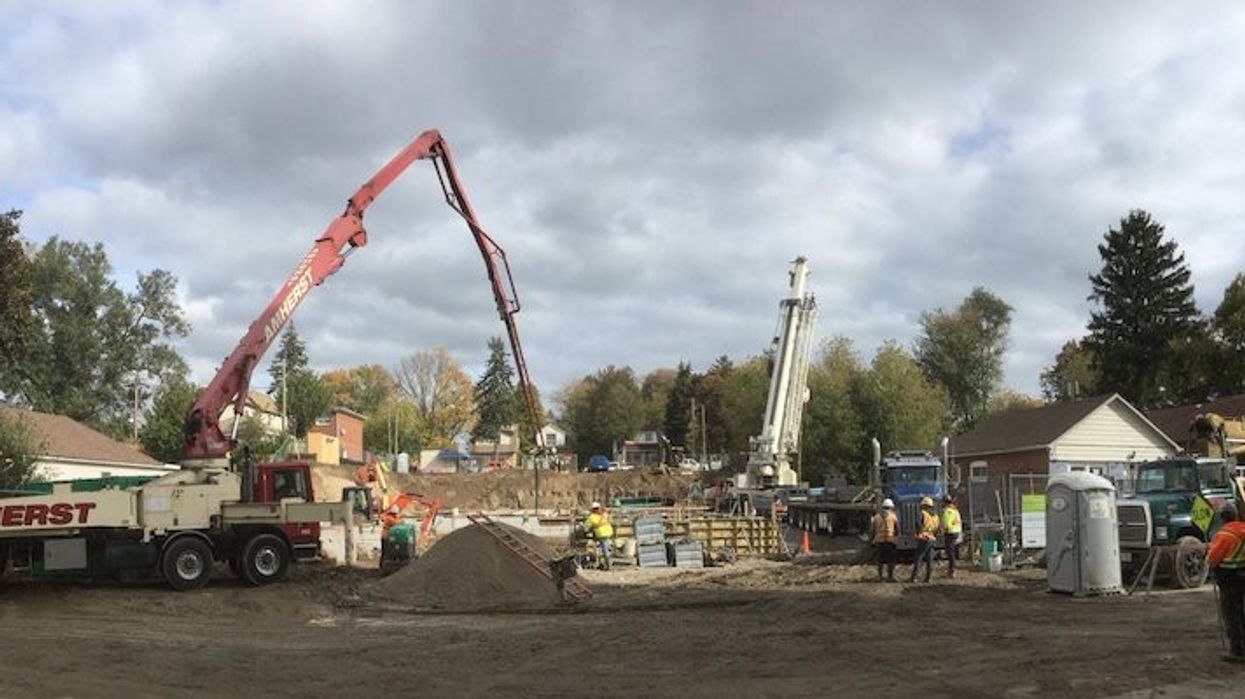Toronto's first modular housing facility in Scarborough is one step closer to opening for occupancy as the first of the homes were installed by crane this week.
Located at 11 Macey Avenue, the modular housing, which are affordable rental homes that also offer support services and are designed for people who are currently experiencing homelessness, are anticipated to welcome residents next month.
"The City’s Modular Housing Initiative is an innovative and cost-effective way in which we are building small-scale, affordable, infill housing while providing a rapid, dignified response to connect people experiencing homelessness with homes and appropriate supports to help them achieve housing stability," said Mayor John Tory.
"This is moving fast because we need to build housing fast. The whole point of modular housing is that we can build it in months not years. That is why it is part of what the federal government and the City, together, call rapid housing. This is part of our plan to move forward with creating new affordable and supportive housing options for residents across this city with unprecedented speed."
READ: Trudeau Government Commits $1 Billion to Modular Housing Across the Country
The City’s implementation plan for up to 250 modular supportive homes was approved by Council at the end of April. The first 100 homes are being delivered this year as part of Phase 1 of the plan at two sites: the building at 11 Macey Avenue, which will provide 56 studio homes and the 150 Harrison Street building will provide 44 homes.
Each building will be three-storeys high and will include common rooms, a dining room, program space, and administrative offices. The remaining 150 homes will be delivered as part of Phase II in 2021.
“During the ongoing COVID-19 pandemic, this life-saving modular housing initiative will provide individuals with safe spaces to exercise physical distancing and self-isolation. In the longer term, this approach will result in substantial cost savings to the public sector, while improving the health and housing outcomes of individuals who are currently within the shelter system,” said Deputy Mayor Ana Bailão (Ward 9 Davenport), Planning and Housing Committee Chair.
Modular housing can be constructed more quickly than permanent housing because the materials are prefabricated in a factory and then transported to the site where they can be assembled at a lower cost and in a shorter timeframe than traditional housing construction models.
But above all, modular housing provides immediate relief for hundreds of people living without a home, especially during the COVID pandemic when access to shelters is limited due to increased safety measures.
According to the City, each modular home is approximately 300 square feet and comes with a built-in kitchen (including a stovetop), microwave, and fridge. The homes also come furnished with a twin bed frame and mattress, a lounge chair, dining table and chairs, and a dresser.
All the items were installed or placed in the homes in the factory and are furnished upon delivery. The process to complete the construction and installation of the 100 modular homes will be approximately six to eight months, as opposed to three to five years for traditional construction.
Modular housing has been successfully used in many jurisdictions in North America including Edmonton and Vancouver in Canada, and Boston and Los Angeles in the United States.





















